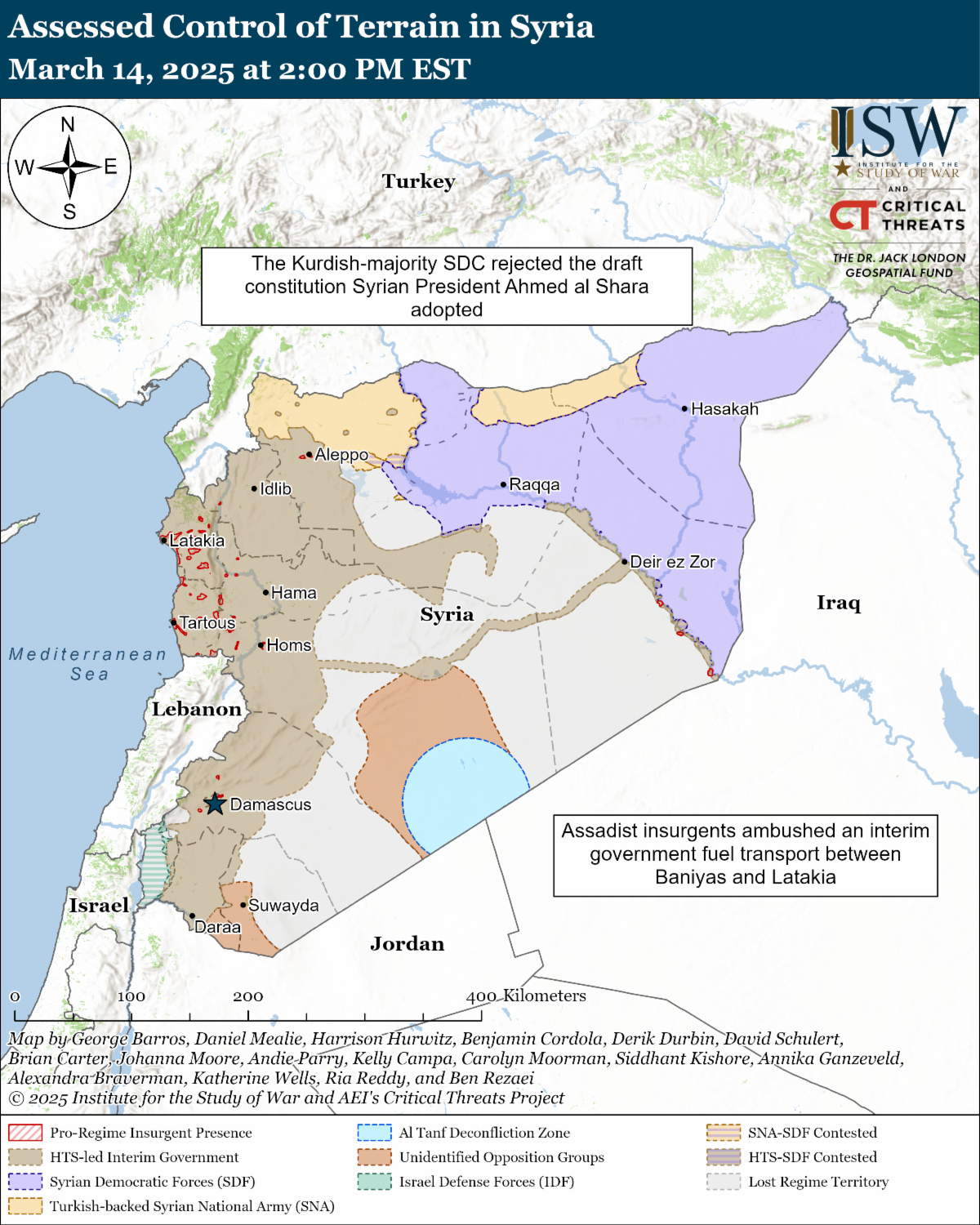Iran, China, and Russia issued a joint statement on March 14 effectively condemning the US “maximum pressure” strategy vis-a-vis Iran. The statement came from a meeting of the Iranian, Chinese, and Russian deputy foreign ministers in Beijing. The statement called on “relevant parties”—a reference to the United States—to “lift all illegal unilateral sanctions” on Iran. The statement described Iranian nuclear activities as “exclusively for peaceful purposes,” despite numerous indications that Tehran has restarted its nuclear weapons program. Iran currently has enough high-enriched uranium to build six nuclear weapons, according to the International Atomic Energy Agency. The statement also emphasized the parties’ commitment to strengthening their cooperation through BRICS and the Shanghai Cooperation Organization. Tehran wants to use these institutions to undermine US sanctions and build a parallel economic order to the US-led one. The Iran-China-Russia statement underscores that Russia is unlikely to play a constructive role in mediating between the United States and Iran. Western media reported that the Kremlin has offered to mediate in recent days. CTP-ISW has assessed that Russia is unlikely to secure US interests via such mediation, especially in negotiations focused on Iranian nuclear activities and the Axis of Resistance.
The Kurdish-majority Syrian Democratic Council (SDC) rejected the draft constitution that Syrian President Ahmed al Shara adopted on March 13. The SDC is the political wing of the Syrian Democratic Forces (SDF) in the Autonomous Administration of North and East Syria (AANES). The AANES similarly stated on March 13 that the constitution was too like the Bashar al Assad regime’s constitution and noted that the focus on Arab identity is a “de-facto falsification of Syria’s national and societal identity.” The SDC claimed that the constitution “grants the executive authority absolute powers, while restricting political activity” and obstructs democratic transition. CTP-ISW noted on March 13 that Shara could use some of the articles in the constitution to consolidate his power over the Syrian state.
The SDC view of the constitution could impact the political and military integration efforts between AANES and Damascus that began on March 10, but it is unclear what exact effects it will have at this time. The SDC condemned the constitution drafting process when National Dialogue Conference sessions were not held in AANES territory before committing to integration efforts. Civilians in SDF-controlled Hasakah shared the SDC sentiment and demonstrated against the new constitution on March 14.
Assadist insurgents ambushed an interim government patrol securing fuel trucks between Baniyas and Latakia on March 12. The Syrian Popular Resistance (SPR) claimed the attack and stated that government forces did not detain the fighters responsible. Local media contrastingly reported that government forces did detain someone. The SPR has little incentive to lie about the detention of its fighters, as the repeated publication of clearly false information risks discrediting the group among its target communities. Acquiring the intelligence necessary to consistently detain insurgents—rather than innocent bystanders—very often plagues counter-insurgency operations, moreover. Arresting the wrong person could spur additional grievances and mistrust of the interim government in these coastal communities.
Attacks on fuel transports in this area could have wide-reaching effects if conducted at a larger scale, as the Baniyas port is critical for energy shipments into Syria. Continuing attacks that target energy infrastructure could worsen the economy and living conditions outside of coastal Syria, where the Assadist insurgency is currently centered. Insurgent leaders may calculate that deteriorating economic conditions will weaken popular support for the interim government and generate momentum for the Assadist movement. Interim government forces collected small arms in negotiated settlements with locals around Baniyas on March 14, suggesting that wrongful arrests have not deterred some communities from collaborating with security officials.
Key Takeaways:
- Iran: Iran, China, and Russia issued a joint statement effectively condemning the US “maximum pressure” strategy vis-a-vis Iran. The statement reaffirms that Russia is unlikely to play a constructive role in mediating between the United States and Iran.
- Syria: The Kurdish-majority SDC rejected the draft constitution that Syrian President Ahmed al Shara approved. It is unclear what effect this rejection will have on ongoing efforts to integrate the SDF into the interim Syrian government armed forces.
- Syria: Russia is using diplomatic and economic incentives to develop and maintain a working relationship with the interim Syrian government, likely in order to maintain Russian military basing there.
| 




 [국방부] 국방부 실장급 인사(자원관리실장) 임용
[국방부] 국방부 실장급 인사(자원관리실장) 임용
 [국방부] 국방부장관 직무대행, FS연습 매진 중인 한미 장병 격려
[국방부] 국방부장관 직무대행, FS연습 매진 중인 한미 장병 격려